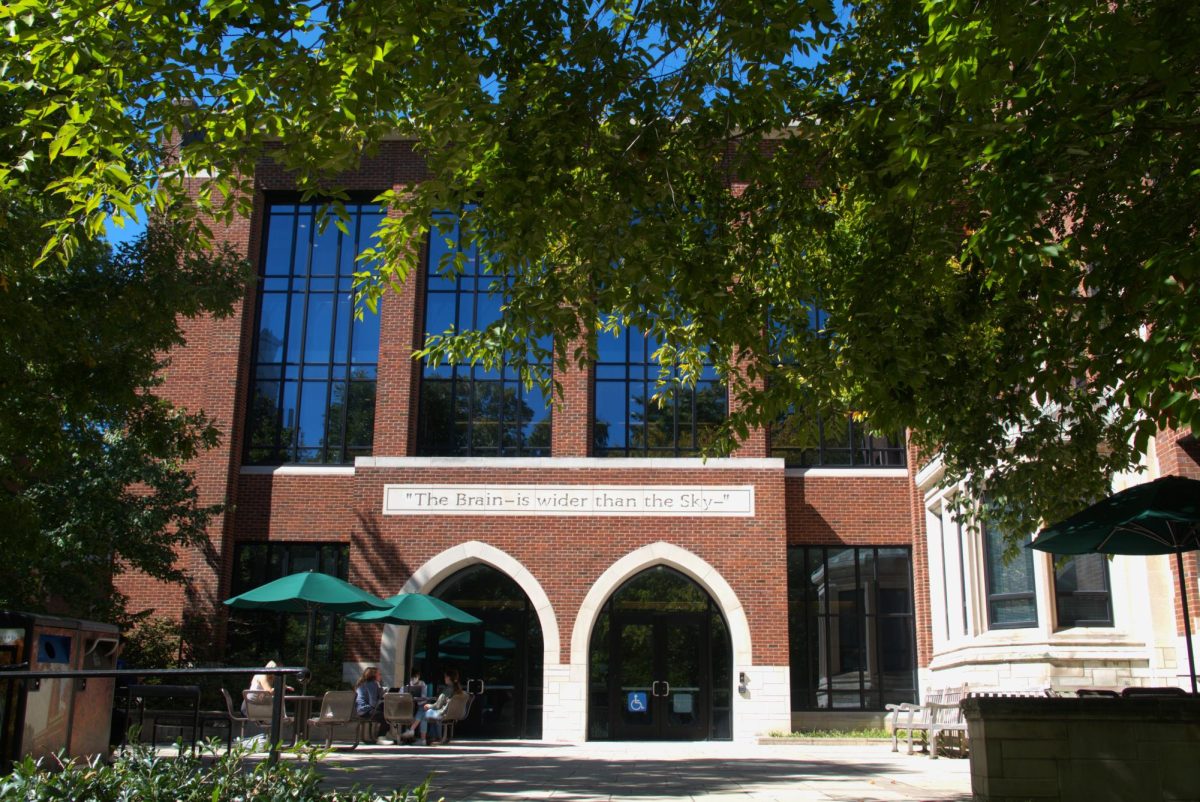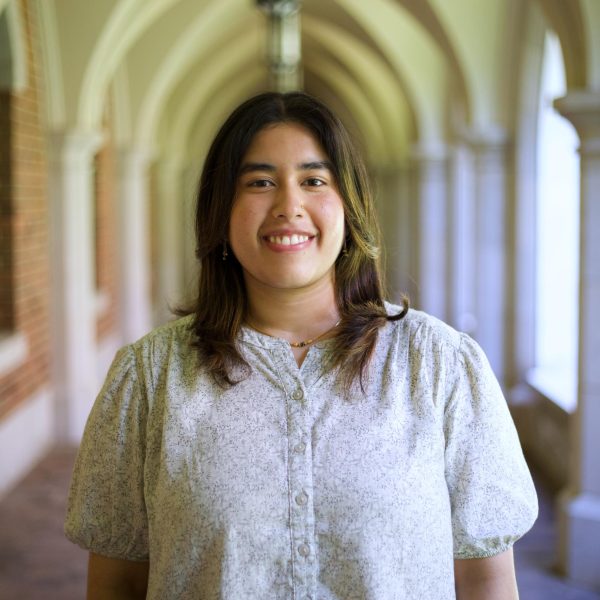The Robert Penn Warren Center for Humanities began its Novel Seminar Series on Sept. 1. For the first event, Dr. Teresa Goddu, professor of English and American studies and faculty head of E. Bronson Ingram Residential College, delivered a presentation on contemporary climate fiction and its intersection with race and genre.
The Novel Seminar Series invites scholars and students to examine the novel form from various historical, theoretical, social justice and political perspectives.
Goddu began the seminar by discussing how she proposed a three-year interdisciplinary academic plan at Vanderbilt known as “The Sustainability Project,” which resulted in the creation of Vanderbilt’s Environmental and Sustainability Studies minor while expanding environmental efforts at the university by integrating environmental sustainability coursework in over 20 departments. Now, Goddu studies and writes on contemporary climate fiction, a subject which she has taught for almost 10 years.
“Contemporary U.S. climate fiction depicts the climate crisis as a whiteness crisis,” Goddu said. “It often represents white, mostly privileged characters in communities becoming destabilized if not undone by climate catastrophe. Climate punctures the bubble of safety and security that cocoons the white psyche.”
Within the U.S. contemporary climate fiction genre, Goddu said she witnessed a catering to the white consciousness, a lack of racial representation and an exclusion of marginalized voices.
“I am tired of the attention that seems to be given to whiteness in this field, to those texts that actually just reify whiteness,” Goddu said. “It’s kind of like shooting fish in a barrel, to talk about how some of these texts are just reiterating old, white tropes.”
Goddu’s recent work focuses on encompassing slave and neo-slave narratives into the genre of climate fiction in an effort to expand it internally and externally.
“I really think a lot of climate fiction is being written, but not recognized as such, especially African American literature,” Goddu said. “I want to expand the canon on what is considered climate fiction and [redefine] what we are actually reading and paying attention to.”
Looking ahead, Goddu said she hopes her work will expand the genre and leverage optimism, satire and new tropes to innovate the body of work and reimagine a better, more sustainable future.
“I am more interested in reading stories that reimagine possible futures or teach me about the structures, historically and currently, that I live within,” Goddu said. “I don’t like literature as policy statements. I don’t like literature to be so instrumental.”
David Brandt, a fifth-year English Ph.D. student, said he decided to attend the seminar due to the similarity of Goddu’s work to his own.
“I wanted to engage with [Goddu] because she has made a transition from studying nineteenth century literature, which I work on, to a very different field,” Brandt said. “I was interested in hearing more about her intellectual journey there.”
Kelsey Rall, another fifth-year English Ph.D. student, chose to take a climate fiction graduate course with Goddu.
“I was already familiar with the books, which was nice,” Rall said. “And while my work is not climate fiction or the twentieth century, it is on novels and genre theory, so I find this seminar in particular really useful in thinking about theory-level genre critiques.”
Fifth-year English Ph.D. student Sarah Hagaman said she decided to attend the seminar to learn about new ideas and perspectives.
“I’m not directly related to Teresa’s field in my research, but I think seminars like this are a good time for people to bring together different perspectives, making it a really rich discussion even though it’s just a snapshot,” Hagaman said.
The Robert Penn Warren Center for the Humanities will continue the Novel Seminar Series throughout the rest of the fall semester with two more events — Mark McGurl from Stanford University will be giving a virtual presentation on Sept. 29, and Yi-Ping Ong from Johns Hopkins University will present at the Robert Penn Warren Center for an in-person event on Oct. 27.




